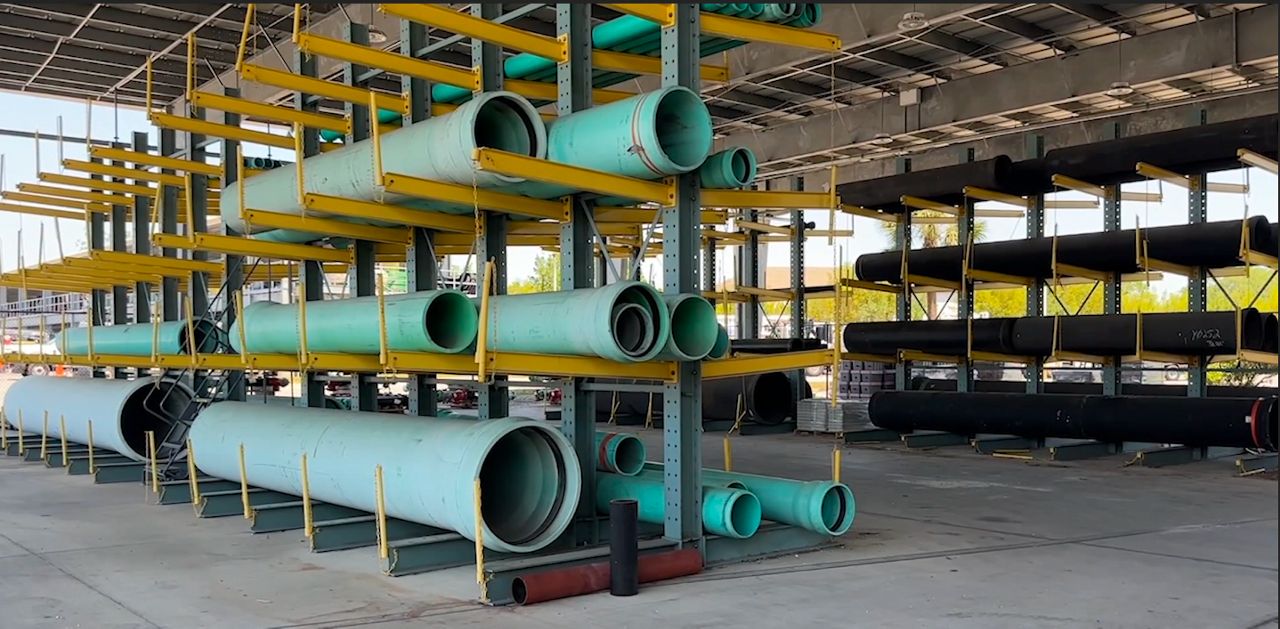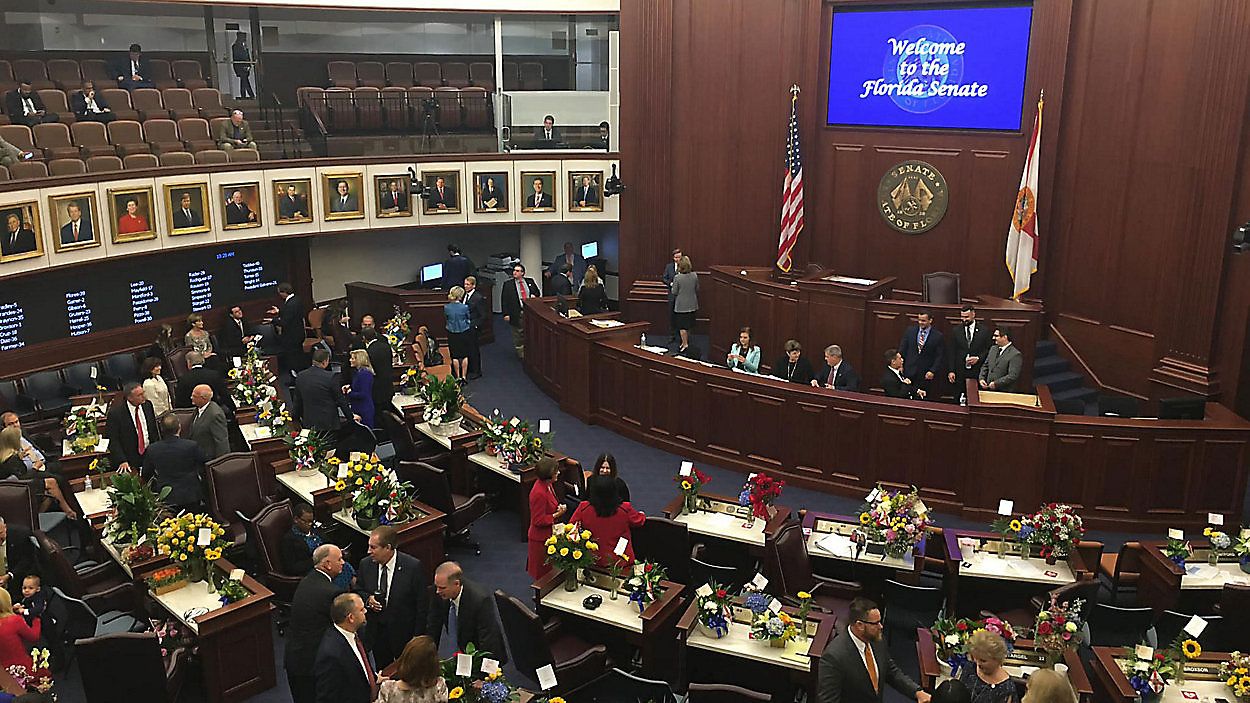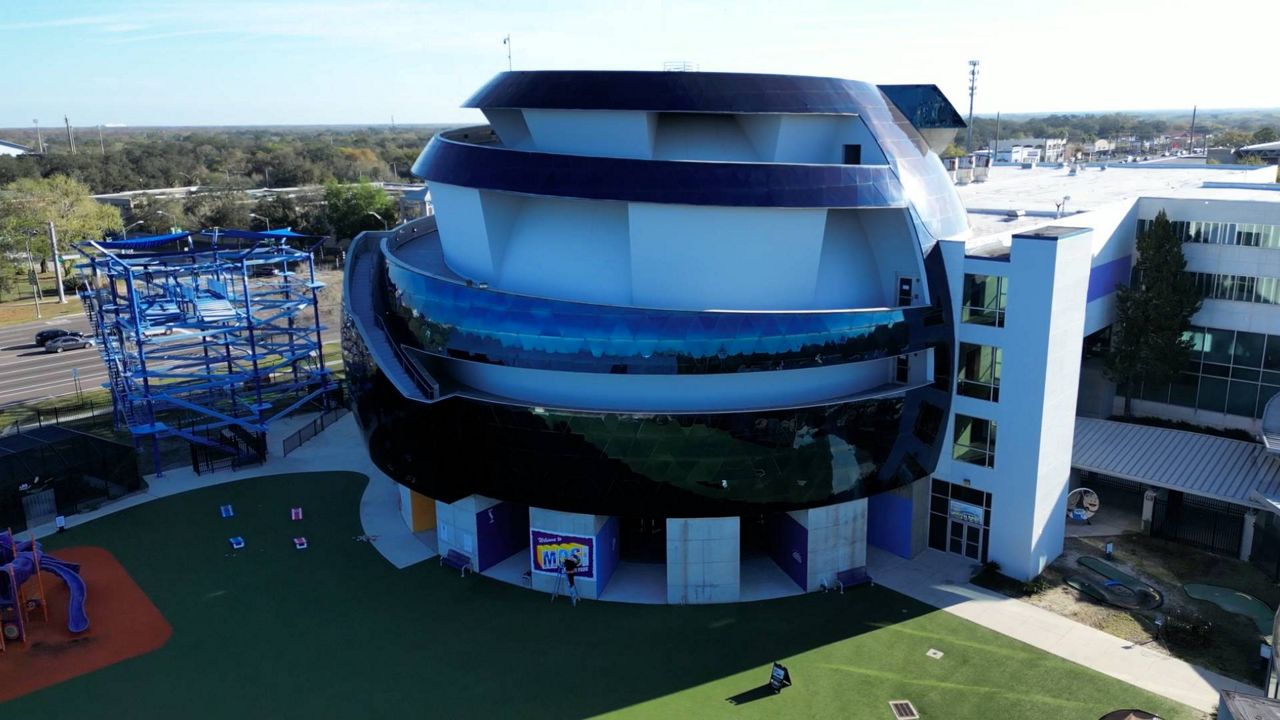ORANGE COUNTY, Fla. — For many of us, the COVID-19 pandemic is now in the rearview mirror. But here in Central Florida, its lingering effects continue to cause unavoidable delays to public projects and repairs.
According to Orange County, all departments are impacted, but utilities, procurement and the traffic engineering division have been hit the hardest.
What You Need To Know
- Supply-chain issues triggered by the COVID-19 pandemic continue to cause slowdowns for Orange County departments
- Installation of new traffic lights faces yearlong delays
- Departments are making efforts to mitigate delays and cost overruns
Orange County Traffic Engineering Manager Humberto Castillero has dealt with this firsthand, explaining that his department has faced an increase in both price and lead-time delays of up to a year when it comes to installing equipment like traffic signals. He said 24 of them have been delayed in the past three years. Pandemic shutdowns led to ongoing material shortages for construction materials like steel and aluminum, which makes it difficult to source needed items and forces county officials to adapt and get creative, Castillero said.
“Our strategy is what we can control, so certainly we have hired additional consultants and also outside contractors," Castillero said. "So whatever we can control, just to make sure that we have enough in terms of resources. So from the design aspect, we have two or three consultant firms that they are helping us out so we can strategize and to design continuously or concurrently several signals."
He explained that hiring has also been difficult, so he's leaning on resources from other areas, like Seminole and Osceola counties.
Meanwhile, Orange County utilities face similar challenges with supply slowdowns, but they've taken steps to continue providing residents with needed services.
Orange County Utilities Section Manager Debbie Sponsler, who has been in her role for over 20 years, explained that the work they do is rewarding.
“I love that what we do provides an essential service for the public. Whether it is water, wastewater or solid waste services, it is important," Sponsler said. "It’s behind the scenes, but without it, people would not be able to function the way they do at home and at work.”
Checking on the master pump station at State Road 535 and Apopka-Vineland Road, which services large commercial, industrial and hotel properties, Sponsler said maintaining regular operations has been challenging. More than a million gallons a day of wastewater generated by kitchens, laundries and bathrooms end up there.
In 2021, when Orange County accepted a bid to renovate and upgrade the facility, completion was expected by March 2023.
It just wrapped up — more than 300 days late.

“A lot of our projects that were impacted initially by some of the supply-chain challenges, we have had to adjust long term and extend some of our contracts and build that in," Sponsler said. "And we are wrapping up a few of the projects or have just wrapped up a few of the projects that were impacted early on.”
She said the pump station upgrade was one of about 10 large capital improvement projects that were delayed since March 2020 because of long lead times for crucial components and supplies.
“Now we still have some delays with electrical components and a lot, again, of our stuff is very specialized, so a lot of those manufacturers are challenged, I think, from both a staffing perspective and individual component pieces,” Sponsler said.
Roads are being affected, too. Sponsler said the county is making adjustments to project timelines.
“For projects like [Lake Underhill], we really just have to plan ahead, and we include a lot of lead time in case we run into any issues with supplies or with materials for the contractor,” said Sponsler, who made it clear that work continues across the county.
“We do have new development coming in and new residents, so we have to plan for the ability to provide services for them so we try to plan as far in advance as possible and bid those projects out to give us the best opportunity to get the contracts and get the construction done within the time that we need,” she said.
Planning includes stocking up on larger amounts of supplies and setting realistic expectations to avoid unnecessary delays and cost overruns.
“Something that may have taken 18 months might now take 24 or longer in terms of months, so we are planning for that. We are able to incorporate that into the overall timeline,” Sponsler said. “When we bid out a project, our original estimates might have been a little bit lower than they currently are. So we might have to go back and look at some of our projects to see what we can prioritize and maybe what we can do differently from what we planned originally,” said Sponsler, emphasizing county efforts to be good steward of tax dollars.
“We keep reevaluating these projects every year to see what is critical, and what is essential and what can perhaps wait, and maybe we will get a cost savings a little bit later if some of those prices go down,” she said.









